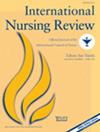Scenario-Based Forecasting of ChatGPT's Role as a Research Assistant in Nursing by 2030
Abstract
Aim
To explore the future role of ChatGPT in nursing research by 2030 and provide a strategic framework for its responsible integration, addressing key opportunities and challenges.
Background
Artificial intelligence (AI) tools, such as ChatGPT, offer significant potential to enhance productivity, foster innovation, and facilitate interdisciplinary collaboration in nursing research. However, they also pose challenges related to ethical governance, equitable access, and risks of overreliance. With AI technologies becoming more prevalent, a proactive approach is essential for ensuring responsible adoption and maximizing their potential benefits.
Method
A structured five-phase scenario planning approach was used: (1) defining the scenario field, (2) identifying key drivers, (3) generating scenarios, (4) evaluating scenarios, and (5) transferring actionable insights. Eleven experts were recruited, of whom almost 50% were from Saudi Arabia. Expert input was gathered to prioritize critical drivers based on impact and uncertainty. Two key drivers, ethical accountability and cross-disciplinary collaboration, were used to construct a 2 × 2 matrix, resulting in four distinct scenarios.
Findings
The four scenarios include: (1) Ethical innovation, where robust governance and high collaboration foster trust and innovation; (2) Fragmented progress, where weak accountability reduces credibility despite high collaboration; (3) Ethical fortress, where strong governance but low collaboration slows progress; and (4) Stagnant patchwork, where weak governance and low collaboration hinder growth. Ethical innovation was identified as the most desirable scenario. Three cross-cutting themes—ethical authorship, trust, and AI overreliance—emerged as critical for evaluating scenario implications.
Implications for nursing and/or health policy
This study provides actionable strategies for nursing researchers and policymakers, including strengthening governance, fostering collaboration, promoting AI literacy, and ensuring equitable access. Addressing concerns around authorship transparency, trust in AI, and overreliance is essential for leveraging AI's potential while safeguarding research integrity and equity.

 求助内容:
求助内容: 应助结果提醒方式:
应助结果提醒方式:


